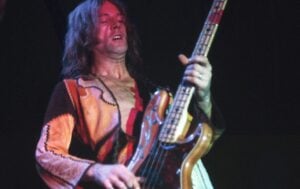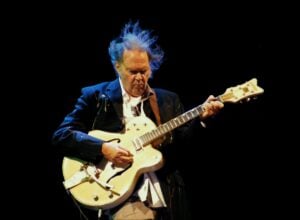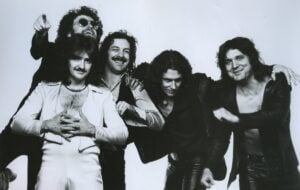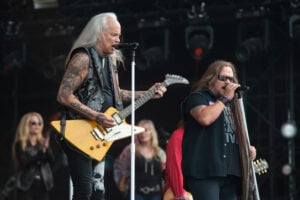Jack DeJohnette, Influential Jazz Drummer Who Helped Shape Modern Jazz, Dead at 83
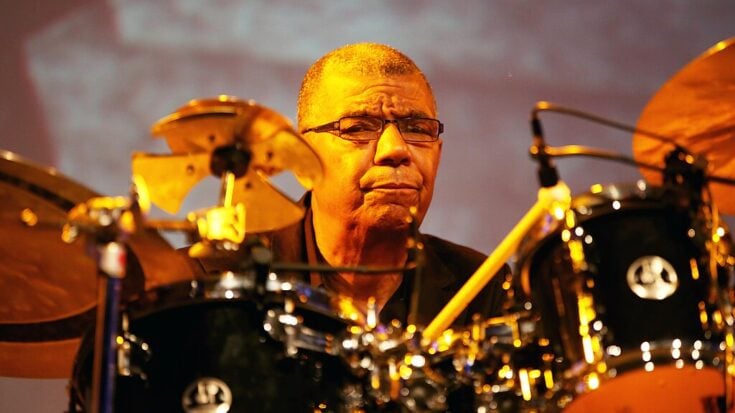
Photo by UKBERRI.NET Uribe Kosta eta Erandioko agerkari digitala, licensed under CC BY 2.0, via Wikimedia Commons.
Early Life and Musical Beginnings
Jack DeJohnette, one of the most influential drummers in modern jazz, died on Sunday, October 26, in a hospital in Kingston, New York. He was 83. His family confirmed the cause was congestive heart failure, and shared the news on his social media pages.
DeJohnette’s six-decade career saw him play alongside some of the greatest names in jazz, including Miles Davis, Sonny Rollins, Herbie Hancock, Chick Corea, Keith Jarrett, and Charles Lloyd. He was celebrated for his versatility, fluid style, and ability to blend genres with ease.
Born on August 9, 1942, in Chicago, DeJohnette was raised by his mother and maternal grandmother, who legally adopted him. His grandmother gifted him a spinet piano, and he began lessons at age five. His uncle, Roy Wood Sr.—a radio announcer and jazz DJ—nurtured his musical curiosity by bringing him to live performances across the city.
By high school, DeJohnette was playing rock ’n’ roll piano with a doo-wop group. However, his passion for jazz reignited after hearing Ahmad Jamal’s At the Pershing: But Not for Me in 1958. He graduated from Chicago Vocational School in 1961, where he met his first wife, Deatra Davenport.
View this post on Instagram
Finding His Sound
DeJohnette’s transition to drums came by chance after a friend left a drum kit in his family’s basement. He began experimenting, learning by playing along with records of his favorite drummers. Encouraged by pianist Muhal Richard Abrams, he moved to New York in 1966 to pursue a professional career.
That same year, DeJohnette joined Charles Lloyd’s quartet, performing with Lloyd and bassist Cecil McBee. The group became one of the most exciting acts of the time, sharing stages with rock legends like Jefferson Airplane and the Grateful Dead on international tours.
His talent quickly caught the attention of Miles Davis. In 1969, Davis recruited DeJohnette to join his groundbreaking electric band. The following year, DeJohnette played on Bitches Brew, one of the most influential albums in jazz history. Davis later praised him, saying DeJohnette “gave me a certain deep groove that I just loved to play over.”
Expanding Musical Horizons
Throughout the 1970s and ’80s, DeJohnette explored various musical directions. He formed several ensembles, including New Directions, Special Edition, and the Standards Trio, which featured Keith Jarrett and bassist Gary Peacock. Their first release, Standards, Vol. 1 (1983), became one of the trio’s most acclaimed works.
DeJohnette’s musical curiosity never waned. By 1992, he was playing rock, experimenting with world rhythms, and even incorporating ambient soundscapes. His 2006 album Peace Time won a Grammy Award for its meditative compositions. Nearly a decade later, he returned to his avant-garde beginnings with Made in Chicago (2015).
His contributions were widely recognized. In 2012, DeJohnette was named a National Endowment for the Arts Jazz Master, one of the highest honors in American jazz. Four years later, he returned to his first instrument with his solo piano album Return.
View this post on Instagram
Remembering a Jazz Giant
Following news of his death, tributes from musicians around the world filled social media. Drummer Vinnie Colaiuta wrote, “Rest in power MAESTRO 🙏🙏🙏. Our hearts are broken yet filled with what you have given us. Thank you Sir.”
Johnathan Blake added, “Rest In Peace, Power, and Paradise Maestro❤️, till we meet again 🕊️,” while Dafnis Prieto wrote, “Thank you for everything you shared with us! Light to your Soul ❤️💡❤️.”
Antonio Sanchez summed up the loss: “He always was the creative eye of the hurricane … all you needed to say was his first name and anybody knew exactly the sound and energy you were referring to.”
DeJohnette is survived by his wife of 57 years, Lydia, and their two daughters, Farah and Minya.





